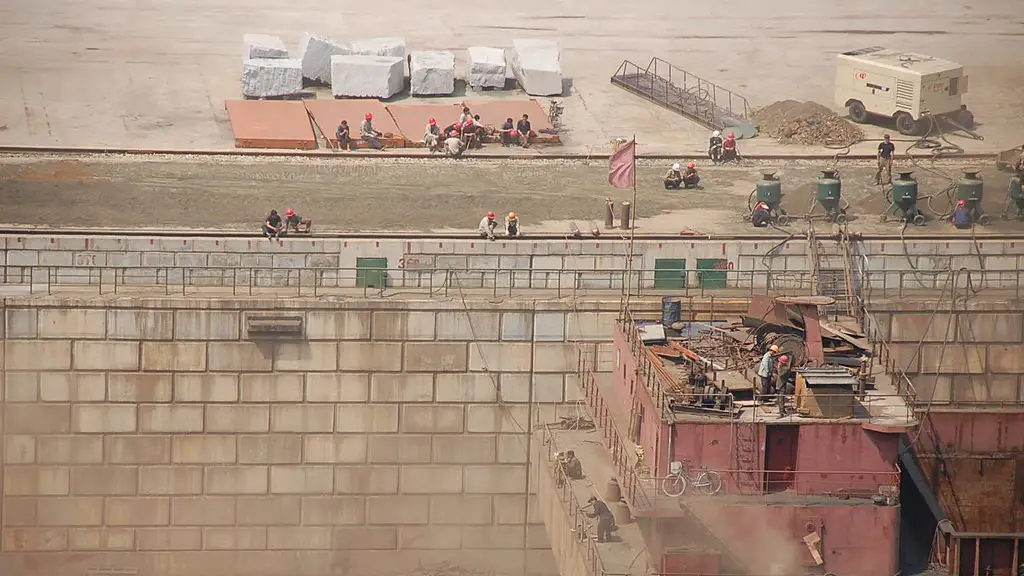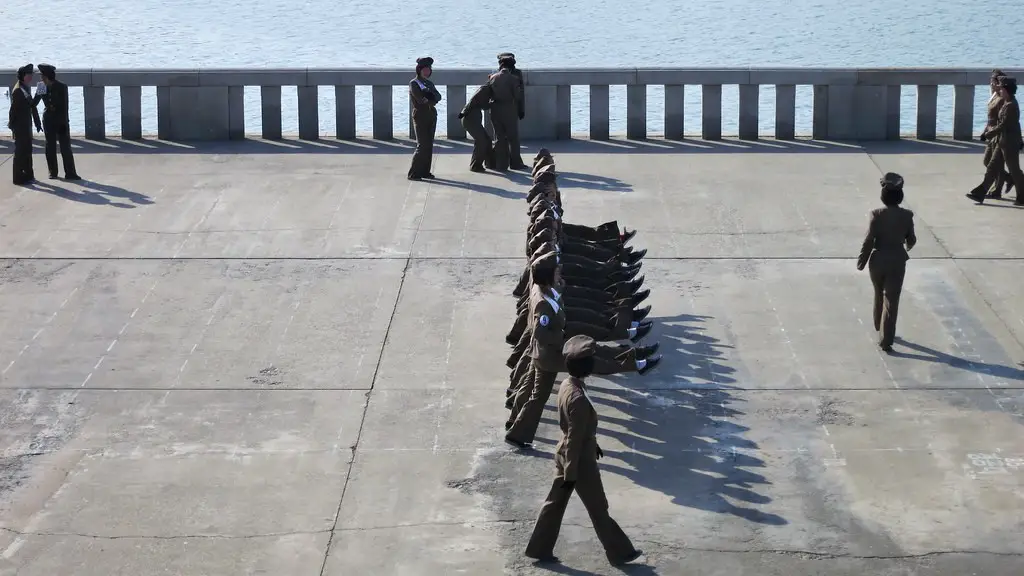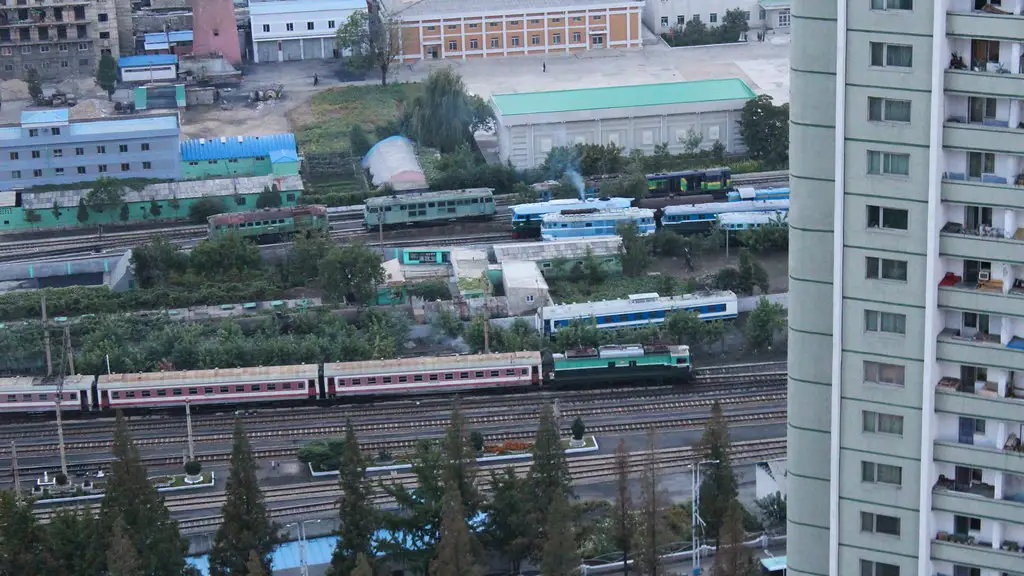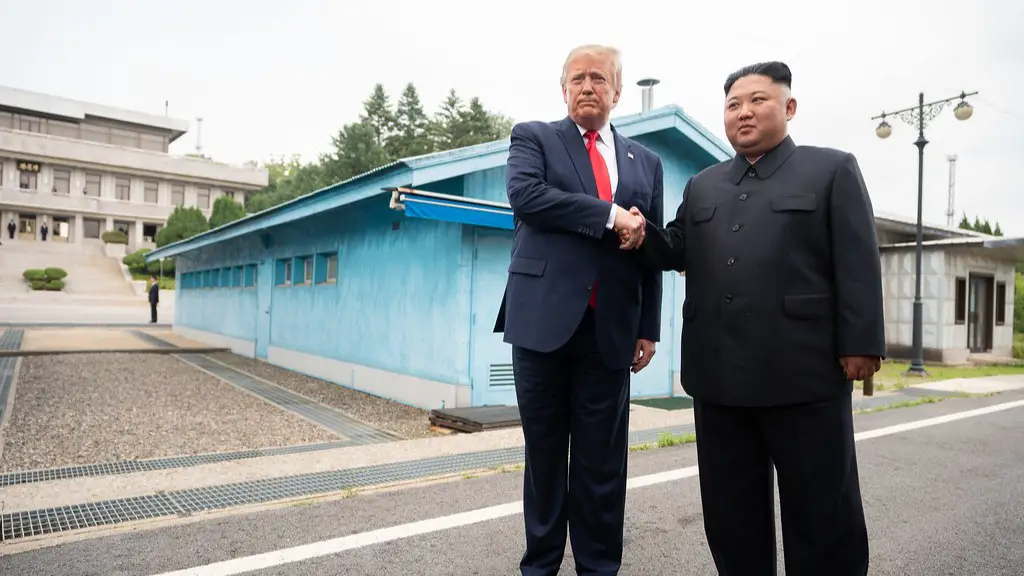North Korea is home to one of the most secretive and repressive command economies in the world. With its state-run approach to economic management and its heavily regulated markets, the North Korean command economy has long been a source of concern for the international community. But how long has North Korea been a command economy?
The term “command economy” dates back to the early years of the cold war, when countries like the Soviet Union had heavily regulated economic systems. In North Korea, the command economy dates back to the 1950s, when the country was declared a socialist republic. Since then, the North Korean economy has become increasingly regulated, with the state controlling a wide range of economic activities, including agricultural production, industrial output, and foreign trade. The North Korean government has also established a number of state-owned enterprises that account for a significant portion of the country’s GDP.
The North Korean government pursues a range of policies that have a direct impact on the functioning of the command economy. For example, the government has used a variety of measures to control wages, prices, and the flow of goods in and out of the country. The government also enforces a number of restrictions on foreign trade, creating legal barriers for North Korean businesses looking to do business abroad. This virtually eliminates the possibility of creating a market-based economy in North Korea.
One of the most notable aspects of the North Korean command economy is its overwhelming reliance on the production of military equipment. The North Korean government currently has one of the largest and most powerful arsenals in the world, and it is estimated that nearly 20% of the country’s GDP is spent on military-related activities. As a result, the North Korean economy has been unable to diversify and develop more sustainable sources of economic growth, further contributing to its sluggish economic performance.
Despite the various challenges facing the North Korean economy, the government has been successful in maintaining its command structure and has managed to endure through periods of international sanctions and economic hardship. In recent years, the government has taken steps to liberalize the economy, including introducing market-oriented reforms and opening up to foreign investment. However, the pace of economic reform has been slow, and it remains to be seen whether the North Korean economy will ever be able to make the transition to a market-based system.
Economic Impact of North Korean Command Economy
The North Korean command economy has had a number of detrimental effects on the country’s economic prospects. The lack of foreign investment and the heavy reliance on military production have resulted in an anemic level of growth and a lack of diversification in North Korea’s economy. Additionally, the North Korean government’s monopoly on all economic activity has resulted in low wages and a lack of basic freedoms for the country’s citizens.
The heavy reliance on military production has also resulted in a variety of environmental problems in North Korea. The country’s large military industry has caused significant pollution and ecological damage, resulting in decreased air and water quality, a decrease in agricultural production, and a number of health problems for the population.
In addition to the numerous economic and environmental problems associated with the North Korean command economy, the system has also had a negative impact on the country’s political prospects. The lack of economic freedom and the state’s tight control over citizens’ lives have bred a culture of fear and repression, further isolating North Korea from the international community.
International Reaction to North Korea’s Command Economy
The international community has long expressed concern about the North Korean command economy and its effects on the North Korean people. A number of countries have implemented economic sanctions against the North Korean government in an attempt to force it to open up its economy and provide basic freedoms to its citizens. However, the international community has been largely unsuccessful in its attempts to bring about meaningful change.
The United Nations has passed multiple resolutions condemning the North Korean government for its human rights violations and calling for an end to its repressive policies. The international community has also condemned the North Korean government for its nuclear weapons program and has imposed numerous sanctions on the country in an attempt to pressure it to abandon its nuclear ambitions.
In recent years, there have been signs that North Korea is slowly beginning to open up its economy. The government has allowed a small number of foreign investors to operate in the country and has allowed some of its citizens to participate in the global economy. While there has been some progress, it remains to be seen whether the North Korean government is truly committed to opening up its economy and allowing its citizens the freedom to pursue economic opportunities.
Role of the U.S. in North Korean Command Economy
The United States has long played a role in the development of the North Korean command economy. Since the end of the Korean War, the United States has sought to use economic incentives and sanctions to influence North Korean behavior and policy. For example, the United States has imposed numerous economic sanctions on North Korea in an attempt to pressure the government to abandon its nuclear weapons program and open up its economy.
The United States has also provided North Korea with economic assistance in the form of food and fuel deliveries. In 2008, the United States and other countries pledged to provide North Korea with up to $1.2 billion in annual food and fuel aid in exchange for the North Korean government’s agreement to dismantle its nuclear weapons program. While the agreement has not been fully implemented, it has been seen as a positive step in addressing the challenges posed by the North Korean command economy.
In recent years, the United States has also sought to promote economic reform in North Korea. President Obama has stated his goal of engaging North Korea in a constructive dialogue and engaging in economic assistance to the country. However, it remains to be seen whether the United States will be successful in its efforts to bring about meaningful economic reform in North Korea.
Impact of North Korean Command Economy on South Korea
The North Korean command economy has had a significant impact on South Korea, its southern neighbor and former enemy. Due to the economic seclusion imposed by North Korea, South Korea has been unable to engage in economic activity with its northern neighbor. This has resulted in decreased economic opportunities for South Korean businesses. Additionally, North Korea’s militaristic stance has resulted in decades of tension and hostility between the two nations, resulting in a heightened sense of insecurity in South Korea.
The North Korean command economy has also had an impact on South Korean foreign policy. Due to the hostile nature of North Korea’s government, South Korea has been unable to pursue closer ties with its neighbor and has instead pursued closer ties with other countries in the region, including China and Japan.
South Korea has also had to spend considerable resources to protect itself against potential North Korean aggression. The South Korean government has invested heavily in defense spending and has developed a complex network of defense systems to ensure the security of its citizens. Additionally, the South Korean government has been forced to devote considerable resources to dealing with the ongoing crisis in North Korea.
Conclusion
The North Korean command economy has been a source of concern for the international community for decades. With its lack of economic freedom and its heavy reliance on military production, the North Korean command economy has had a significant impact on the country’s economic prospects, international relationships, and the security of its citizens. While the North Korean government has begun to take steps towards reforming its economy, it remains to be seen whether the country will be able to make the transition to a more market-oriented system.




